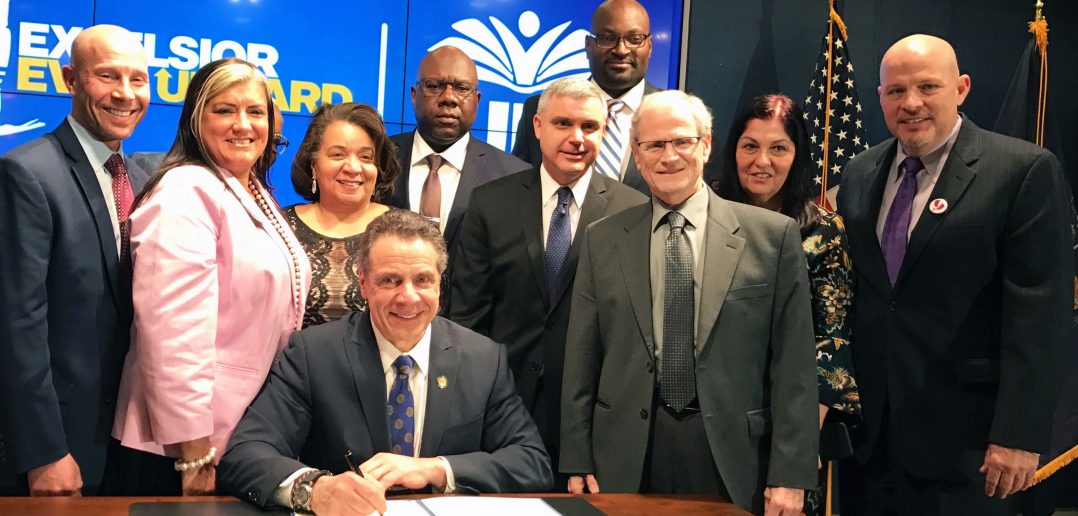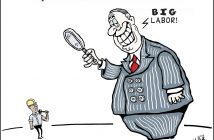ALBANY — In a major victory for CSEA, Gov. Andrew Cuomo recently signed legislation that changes the state’s Taylor Law to protect working people from the impending implications of the U.S. Supreme Court’s expected ruling in Janus v. AFSCME Council 31.
This bill signing shows the continued power of working people in New York, even as the labor movement faces attacks like never before. Even if the U.S. Supreme Court decides that non-members can benefit from union representation without having to contribute, the changes will help us continue to provide the best representation to CSEA members.
“By enacting these changes, the governor and state legislators supported what we have been saying all along — that there is no free lunch,” CSEA President Danny Donohue said. “The central issue is fairness to working people across our state.”
CSEA strongly advocated for the legislation passed as part of the recent 2018-19 New York State Budget.
“The governor and state legislature stood with us in passing this legislation that ensures fairness and allows CSEA to represent all of our members to the best of our ability,” Donohue said. “Our state’s elected leaders have shown solid leadership and support in standing alongside us in promoting the rights of labor in the face of attacks from wealthy CEOs and corporate interests who are out to destroy and defund our union.”
Here is a look at the changes to the Taylor Law, initially passed in 1967:
Duty of Fair Representation limited
The most important change to the Taylor Law relates to the Duty of Fair Representation.
The new legislation gives public employee unions the option not to provide representation to non-members in any disciplinary cases. Unions will not be required to offer any legal, economic, or job-related services beyond those provided in the collective bargaining agreement.
New employee information boost
The new legislation also states that public employers must notify an employee organization of new employees, and provide the following, within 30 days of employment:
- name;
- address;
- job title;
- employing agency department or other operating unit; and
- work location.
Public employers must also allow a duly appointed representative to meet with new employees at the work site during work time for a reasonable amount of time without requiring employees to charge leave time. Additionally, employee organizations are now permitted to use electronic membership cards.
Returning from leave
One other significant change to the Taylor Law addresses the “churn” problem that has occurred when members have gone out on voluntary or involuntary leave and been reinstated as agency fee payers upon their return. Now when members return to the same employer after voluntary or involuntary leave, they will return as members and the right to deduct dues will be automatically reinstated.
“Regardless of the outcome of the Janus case, this legislation will strengthen workers’ ability to stay union and stay strong!” Donohue said.




